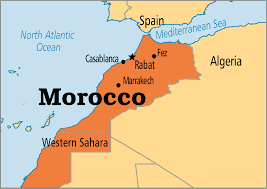Morocco’s migration policy and its promising initiatives in favor of migrants and refugees, has enabled the Kingdom to climb another rung in its management of migration issues, reports said on Thursday.
The United Nations say Morocco has managed to deconstruct prejudices and stereotypes, which ignore the legitimate needs of migrants and therefore, establishes itself as a Africa’s reference in this area.
Morocco’s migration strategy, adopted in September 2013, is set up as a regional model for handling the migration issue in a responsible and cohesive way.
This vision stems from the fundamental transformation that Morocco has experienced in recent years, thus passing from a land of emigration or transit to a country hosting migrants mainly from sub-Saharan Africa, and to a lesser degree, from the Middle East, Asia and Europe.
Taking into account this migratory process, Morocco has drawn up its own roadmap, which revolves around a humanistic, coherent and global approach. Morocco’s Immigration and Asylum Strategy is characterized by its uniqueness, especially through the involvement of civil society organizations in its planning and implementation of its flagship activities.
This migration policy, which seeks global governance of migratory movements, is also illustrated by a good conduct of the exceptional operation of regularization of the situation of thousands of irregular migrants with a view to ensuring their better integration and consequently, a better management of migratory flows.
Consequently, a comprehensive operation to regularize illegal immigrants in Morocco was conducted, in its first phase, for 25,000 people, followed by another operation of the same kind for the number. To date, no less than 50,000 people have been regularized, with all the positive implications for beneficiaries in terms of access to public education, health and even social security services, not to mention the job and business opportunities offered in the private sector.
One of the strengths of the National Immigration and Asylum Strategy is allowing migrants and refugees to have access to basic services, including education, health, housing, vocational training and employment. However, in order to consolidate the right of access to these services, efforts must be made, particularly in terms of information, communication and the establishment of orientation and referral mechanisms for migrants and refugees to the bodies concerned.
Implementing the strategy in various territories is one of the priorities on which Morocco is working, the objective being to ensure that this system work and have a real impact on the beneficiaries.
At the African level, during its 28th Summit, held in January 2017, the African Union (AU) entrusted King Mohammed VI to lead the reflection on the management of the migration crisis on the continent and the following Summit, held In July in Addis Ababa, the Monarch presented the first milestones of the common African vision on immigration.
At the 30th AU Summit, the King suggested the creation of an African Migration Observatory and an AU Special Envoy for Migration. These two proposals were validated by the Pan-African organization at the end of the 31st Summit in Nouakchott.
At the world level, the African Agenda can inform the process of drawing up the global compact for safe, orderly and regular migration at a conference to be held in Marrakech at the end of 2019. This strategic impetus gave the Kingdom, a real force of proposal and thus a prominent and active role on the regional and international scenes in the management of the global issue of migration.
As one of the few countries to have developed a national strategy to deal with the migration issue, Morocco is rightly regarded as a model to be followed in the management of migration, a phenomenon plaguing the African continent, which has a population of over 36 million migrants.
HA/fss/abj/APA


